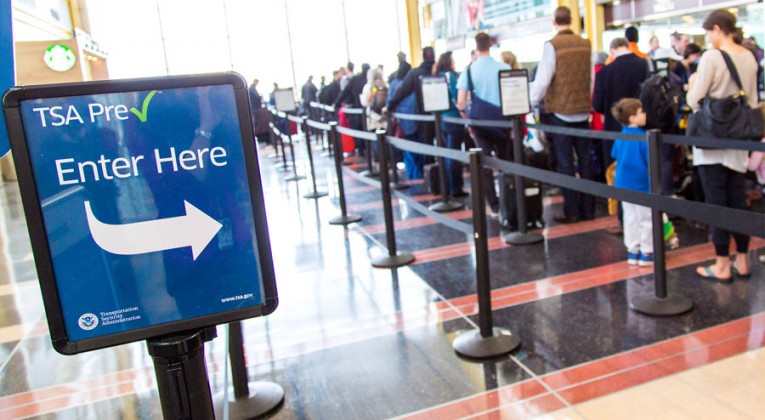Stricter security measures for items carried aboard airplanes are expected to be eventually expanded to all airports throughout the United States by the Transportation Security Administration through which travelers in standard lanes at airport security checkpoints will be required to place all electronics larger than a mobile telephone in bins — with nothing over or underneath them — for screening.
Stricter Security Procedures to Be Expanded Domestically in the United States
In standard screening lanes, agents of the Transportation Security Administration “will be stationed in front of the checkpoint X-ray machines to guide passengers through the screening process and recommend how best to arrange their carry-on items for X-ray screening”, according to this official press release. “Travelers are encouraged to organize their carry-on bags and keep them uncluttered to ease the screening process and keep the lines moving. There are no changes to what travelers can bring through the checkpoint; food and liquid items that comply with the 3-1-1 liquids rule, electronics, and books continue to be allowed in carry-on bags.”
The new screening procedures for travelers in standard lanes at airport security checkpoints are already in place at the following ten airports in the United States, where they purportedly have been tested extensively and successfully:
- Boise Airport — BOI
- Colorado Springs Airport — COS
- Detroit Metropolitan Airport — DTW
- Fort Lauderdale-Hollywood International Airport — FLL
- Logan International Airport — BOS
- Los Angeles International Airport — LAX
- Lubbock Preston Smith International Airport — LBB
- Luis Muñoz Marín International Airport — SJU
- McCarran International Airport — LAS
- Phoenix Sky Harbor International Airport — PHX
Similar to how laptop computers have been screened for years, the new security procedures will supposedly assist agents of the Transportation Security Administration obtain a clearer image of bags when they are scanned at the checkpoint.
The stronger security measures do not apply to passengers enrolled in TSA Pre✓ program — who do not need to remove shoes, 3-1-1 liquids, laptops, electronics, light outerwear, or belts — who are using lanes specially marked for their use.
“Due to an increased threat to aviation security, DHS Secretary John Kelly announced in late June new security requirements for nearly 280 airports in more than 100 countries”, according to the aforementioned press release. “In an effort to raise the baseline for aviation security worldwide, TSA continues to work closely with airports and airlines to enhance security measures and stay ahead of the evolving threat.”
Inside Take
Despite the assertion that the Transportation Security Administration has “identified ways to improve screening procedures with quicker and more targeted measures to clear the bags” through extensive testing, passengers in standard lanes should expect to experience delays and longer wait times in line due to an increase in bag checks — as well as the time which inexperienced passengers will need to remove all of the electronic items from their bags.
Source: Transportation Security Administration.


